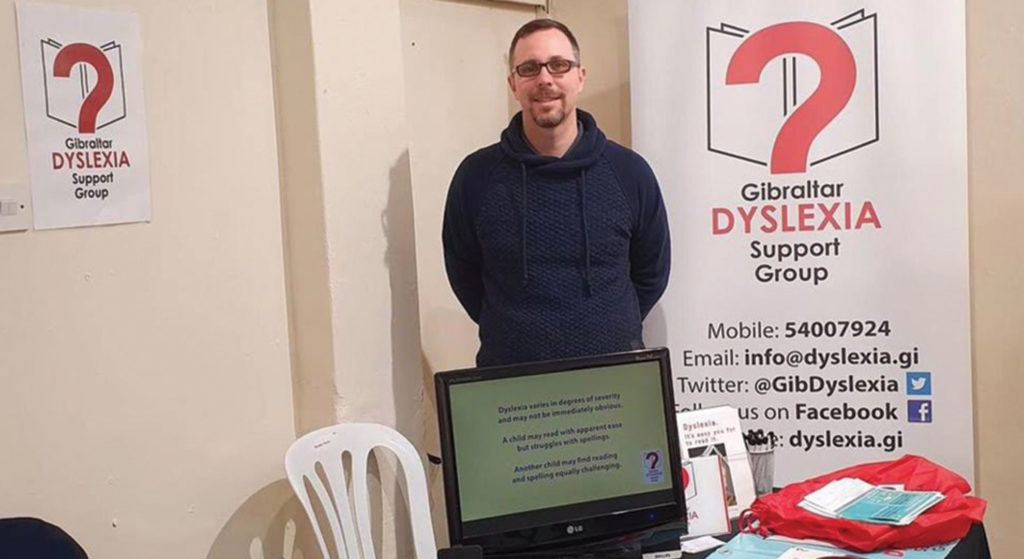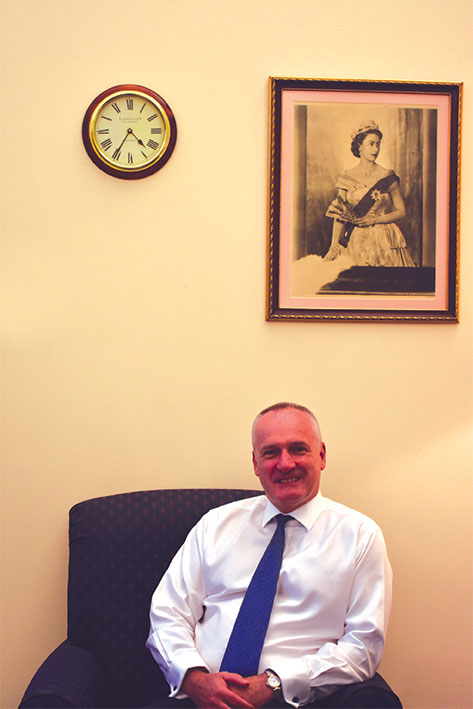Many of us may have preconceived ideas about what dyslexia is and how it can impact on someone’s life. As a result, people with dyslexia often have to overcome numerous barriers, despite the fact there are many positive differences and sometimes hidden talents. However, it is those perceived barriers that sometimes give people the strength to overcome them and to achieve success because of, and not despite of, dyslexia.
Ten percent of the world’s population are believed to be dyslexic, but dyslexia is still often poorly understood. We all know the high profile entrepreneurs, business leaders and celebrities with dyslexia, such as Lord Sugar, Anita Roddick, Richard Branson, Jamie Oliver and Ikea founder Ingvar Kampradand, and there is no doubt that with the right support, the strengths and talents of dyslexic people can really shine. However, change is needed, especially by educators and in the workplace, so that dyslexics can reach their full potential.
To raise awareness of the problems surrounding those issues, The Gibraltar Dyslexia Support Group (GDSG) in association with the Gibraltar Federation of Small Businesses (GFSB) will be hosting a Diversity & Inclusion Seminar in September to highlight the positive impact of dyslexia in the workplace.

Stuart Byrne, who works at the GFSB and is also Chairman of the GDSG, explains how the seminar came about. “This is something that the GDSG has been wanting to do with the business community for a number of years, but so far a lot of our efforts and work has been mainly focused on children, the education system and helping youngsters and parents, but it has always been our aim to open the scope a bit more and to try and help dyslexics in the workplace as well.”
An invitation to the Global Summit from Made by Dyslexia in London, a global charity led by successful and famous dyslexics such as Richard Branson, with the purpose to help the world properly understand and support dyslexia, led Stuart to thinking that this was now the perfect opportunity to reach the local business community in Gibraltar. At the Summit a report was handed out to all delegates on The Value of Dyslexia, created in collaboration with EY, which showcased in depth how neurodiversity will become increasingly valuable within the working world, highlighting key facts and research into dyslexia and its unique thinking skills.
“I approached the GFSB and they thought a seminar was a great idea and were happy to support it,” Stuart explains, “and from there we branched out and got in contact with other organisations that we thought would be interested in supporting it, such as the CIPD, Women in Business and the Gibraltar Chamber of Commerce, amongst others, and together with our sponsors we are able to bring expert speakers over to participate in the seminar here in Gibraltar.”
These guest speakers comprise Kate Griggs, Founder and CEO of Made By Dyslexia, Benjamin Cooke, Senior Strategy Consultant at EY London, and Edward Davis, His Excellency The Governor of Gibraltar and Gibraltar Dyslexia Support Group Patron.
As a dyslexic himself and with two children with dyslexia as well, Stuart is passionate to raise awareness of dyslexia and realises that businesses, schools and people can all make small changes that can result in big differences.
“Dyslexia has always been fighting its case for reasonable adjustments to be made in the workplace, but with companies investing in diversity and inclusion programs at the moment surrounding gender, race, sexual orientation, disability etc., it seemed to be the perfect time to include dyslexia in that mix to heighten awareness and create an inclusive environment for dyslexics in the workplace, and I think it is about time the business community starts thinking about how better to serve their staff,” Stuart states.
So what reasonable adjustments could businesses think about to help support people overcome the challenges posed by dyslexia? Stuart says that the list is endless! “The important thing is looking at people as individuals, and to recognise that if you have two dyslexic members of staff it does not mean that they need the same assistance.” Part of that is working towards their strengths and supporting their weaknesses.
“You have to be individualistic and holistic in your view of your staff, maybe putting a creative person alongside an academic person, maybe letting someone record things audibly, being a bit lenient on spelling on internal correspondence, or having someone to double check their work before an email gets sent out to a client.”
“There are lots of little easy simple things that can be done at either none or minimal cost to the business, it is just a mentality shift, and hopefully we can start building on that with this seminar,” Stuart states.
The Governor of Gibraltar, Patron of the Gibraltar Dyslexia Support Group
Edward Davis, His Excellency The Governor of Gibraltar and Gibraltar
Dyslexia Support Group Patron, talks to Jo Ward about the upcoming seminar and about being dyslexic himself.

It was only about a year and a half ago that The Governor found out about the GDSG at a family charity day on the Piazza. “It was a bit of a revelation when I came across Stuart and his team and after chatting with them for a bit I was instantly keen to get involved,” he says, “so I was delighted to become the Patron, especially as being associated with the group has given me an opportunity to better understand my own dyslexia at a fairly senior age, which in some ways, I wish I had the opportunity to do before, but I am glad I have done it now, so I want to express my thanks to Stuart.”
The way we talk about personal cognitive differences has changed over the past couple of years – from members of the Royal Family speaking out about their own personal challenges, to politicians and celebrities using their public platforms, and this has transformed the views that people have on personal cognitive differences and altered the way in which we are willing to engage with people with such differences, and that includes dyslexia.
“The community of Gibraltar is a lot better off because we have a better understanding of dyslexia, we are engaging with it and embracing it in a way which is very positive, and I think it has helped me in my own personal journey,” His Excellency states. “I was born in Hereford, made in the Royal Marines and defined in Gibraltar – part of my self-definition journey here in Gibraltar, which I suppose is a look-back over my life so far, is understanding the role dyslexia has played in my life.”
As with many children, Edward Davis found his differences made him stand out at school. “My dyslexia was first recognised by my parents when I was at primary school, so I had some extra tuition, but in those days, the focus was on dealing with the symptoms as opposed to the causes of the difference,” he comments. “This meant that I was just made to read more, rather than addressing some of the fundamental underlying issues, embracing personalised learning techniques or focusing on different educational disciplines so that you could contribute productively as part of your school along with your school mates, in a way which made you not stand out as being different in a negative way.”
Keen to explain that the fact that being dyslexic means that you have different abilities, not limiting abilities, The Governor says that one of the things he has mastered is how he approaches learning. “I have got a very good memory and I can take lots of facts in and remember them – that was very much what got me through my ‘O’ and ‘A’ levels,” he tells me. After joining the Royal Marines, His Excellency says that dyslexia wasn’t a hindrance to his career path as, by then, he knew how to prepare himself for occasions, whether that was reading or speaking in public, where his dyslexia would particularly manifest itself. “It was muscle memory of the brain, so I wasn’t relying on seeing, computing and speaking in real time. I made myself familiar with what I was going to read beforehand; in doing so, I compensated for the short-comings in my ability to speak in sync with my reading.”
Agreeing that the upcoming seminar will help to heighten the profile of dyslexia, The Governor adds that he would describe diversity and inclusion as embracing the power of combinations. “I have lived my personal and professional life by harnessing the power of having the humility to realise that everybody has something to offer and that if you don’t include them then you are going to miss out,” going on to say that he thinks dyslexia will become an increasingly significant difference if utilised correctly. “I say that because the nature of the future workplace, and the business that the future workplace conducts in our increasingly digitally-driven world, will become more and more dependent on some of the inherent skills and attributes that dyslexics have: their curiosity, creativity, innovation and lateral thinking.”
The Governor comments that this is particularly evident in Gibraltar’s context, where it is already a digitally-based economy, and one that will become increasingly more so. “The worldwide figures are quite striking. In the next ten years 60% of jobs and 30% of the activities within those jobs are going to be automated through artificial intelligence (AI) and robotics. The remaining activities are going to require employees who are able to engage with the digital business enterprise in a far more intuitive and dynamic way. And I believe dyslexics have the differences and the attributes to succeed in such an environment.”
“Against this backdrop, we are, potentially, going to either have to reskill, or train from scratch, up to 4,500 members of Gibraltar’s workforce, to be able to give them meaningful, fulfilling, productive employment in the future and to also provide Gibraltar – the unified jurisdiction – with the workforce skills that it needs to maintain its socio-economic wellbeing,” he states. This can be helped by companies understanding the difference that is dyslexia. A difference that has a lot of the skills that will be needed in a digitally-driven economy. A difference that dyslexic employees already have within Gibraltar’s business community.
“Ultimately, understanding, engaging and embracing dyslexia within the Rock’s business community is all about increasing commercial outcomes in step with improving staff wellbeing. Resulting in greater good for everybody.”
The Governor contends that given the changing nature of the workplace it is a very timely, important and inspired seminar, because in Gibraltar, as in business-led jurisdictions everywhere else, the difference that is dyslexia has the potential to make a difference that matters.







